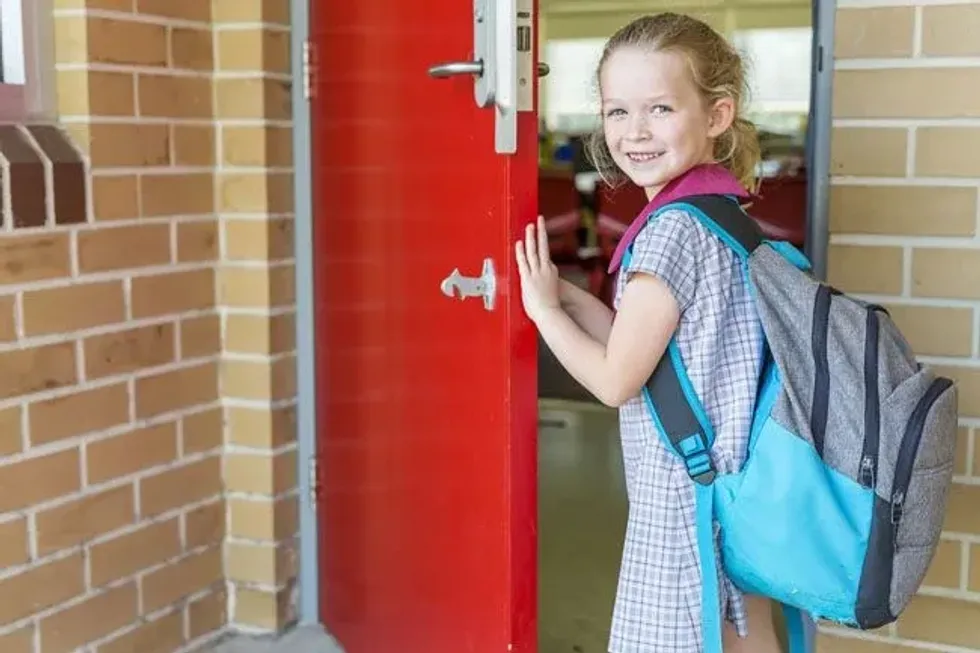What’s it like starting school for the first time? It’s a big moment for both children and parents. There are few moments in life that everybody photographs, but a child’s first day in school uniform is surely one.
As with any lifestyle change, the experience will be different for every child. Some will be nervous; others chomping at the bit; many, somewhere between the two.
Parents will have many questions, too. Will my child make friends? Will they cope with the work? Will that little toilet problem happen?
Have I got their uniform right? What if the other kids are all better at reading and writing? How do I book after-school clubs? How on earth am I going to get away from work every day at 3pm to pick them up?
Such anxieties are normal, and probably universal. But as with most upheavals, the enormity soon subsides as we slip into a new routine.
The vast majority of kids get on just fine in Reception, especially if they have parents who are engaged and interested in their progress. Teachers and assistants are well trained to help those who do struggle, or to point you towards the right support networks for any children with special requirements.
Your school will have plenty of information on how to prepare kids for school, and what to do if they do encounter problems. If something feels wrong, reach out, ask questions, get help.
You can put some prep work in, too. Check out our nine tips on getting a child ready for their first school day, which include planning your route, playing at being pupils and teachers, and getting them used to large gatherings again via Zoom or other internet chat software.
The coronavirus challenge

Image: iStock
This year’s intake, of course, also has to contend with all the coronavirus considerations. Schools have had to make many changes to minimise the risk of virus transmission.
One of the first things you’ll notice is how little access you’ve had to the school over the summer. Normally, parents and children would be invited to go in for taster sessions, with plenty of time for questions.
That has not been the case for many schools this year. To compensate, the school may have sent you a plan to gradually ease your child into the school routine, with a few hours here, a few hours there, building up to full-time attendance in the second half of September..
Kids starting reception this year will do very little mingling with other age groups, as schools attempt to keep classes in separate ‘bubbles’. If you have a child in an older age group, it’s unlikely they’ll get to see their sibling during the school day.
What about mingling within a Reception class? As any parent knows, it’s almost impossible to keep 4- and 5-year-olds entirely apart if they’re in the same room. But teachers and classroom assistants will do everything they can to make sure shared equipment is regularly cleaned, and that hands are regularly washed.
If you were counting on a breakfast club or after-school club to keep your child occupied while you squeeze in a little more work, then check again that they’re running. Some schools have been unable to promise out-of-hours classes from the start of term.
The need to keep kids in their separate bubbles outside full staffing hours poses a challenge for smaller schools.

Image: iStock
Drop-offs and pick-ups will also be different this term. Parents are encouraged not to mingle too much at the school gates, and to arrive and leave at a specific time. This time might be staggered between classes or age groups, to stop children in different ‘bubbles’ from mingling.
This may complicate things if you have other children at the school. Most schools will have some kind of system in place to take this into account and make exceptions for siblings. Make sure you know how that works.
In some ways, Reception year pupils may find the new coronavirus measures less unsettling than their older siblings. The school environment may be entirely new to them, so they won’t compare the current situation to how things used to be.
At the same time, most will have been through some kind of nursery or preschool experience. Reception class isn’t so very different.
They may have to wear a uniform and many of their classmates will be new to them, but the kinds of activities they get up to will be broadly the same as a preschool nursery class. The hours may well be shorter, too.
Starting school is always going to be a big change, but it need not be a scary one. Talk regularly with your child about their experiences and encourage their social skills and learning.
Ask about the new friends they're making, and the new ideas they're learning. And be sure to ask for help if something is not right. Do all this and there's every chance your child will thrive in their new school.










